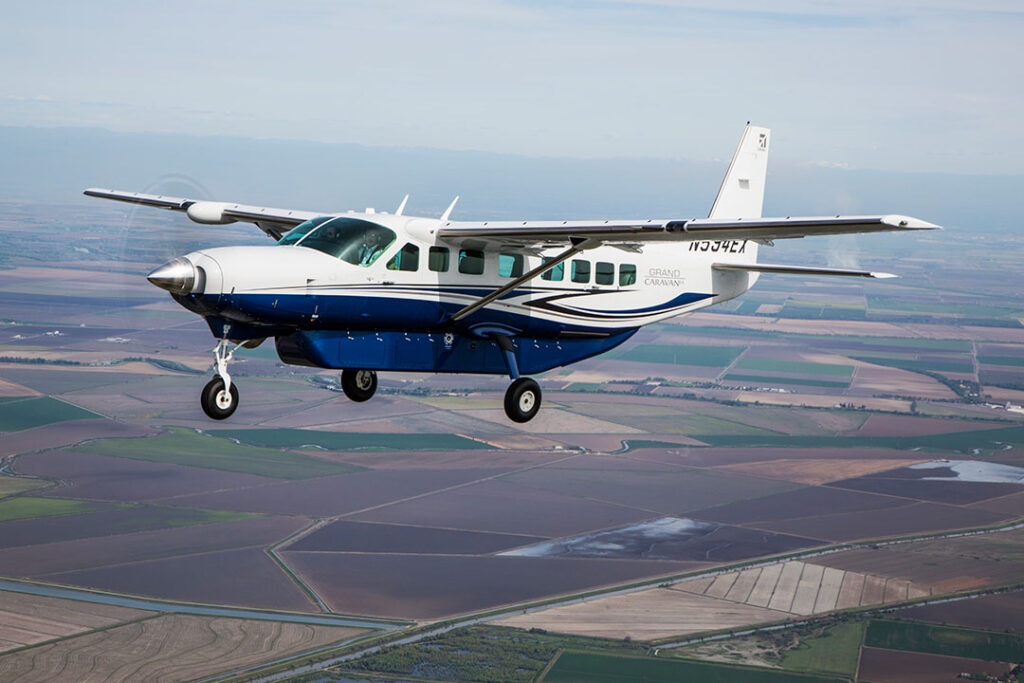ADF STAFF
The Tunisian Air Force has bolstered its intelligence, surveillance and reconnaissance (ISR) capacity with the delivery of two Textron C-208B Grand Caravan EX aircraft.
Tunisia is scheduled to receive a total of four of the United States-made planes, part of an initiative to build Tunisian military capacity, Military Africa reported. U.S. officials said the aircraft will be configured for ISR purposes, but not be armed. Surveillance equipment will include night vision capability. The contract for the planes includes spare parts, flight training, technical drawings, logistics support and ground support equipment.
The deal was conducted via a U.S. government initiative to equip multiple African nations with a combined 16 Grand Caravan EX aircraft via the Foreign Military Sales (FMS) process, Military Africa reported. Eligible countries participating in the FMS program can buy goods and services with their own funds or with funds provided through U.S. government-sponsored assistance programs. Past recipients are Cameroon, Chad, Kenya, Mali, Mauritania, Niger, Nigeria, Rwanda and Uganda. About 189 countries and international organizations participate in FMS, the U.S. reports.
About 4,500 people serve in Tunisia’s Air Force. A state of emergency has been in effect in Tunisia since terrorist attacks took place in 2015. Militants have attacked the capital city of Tunis periodically, but the main area of terrorist operations remains the central-western highlands near the Algerian border.
“The southern border is a designated militarized zone with high security due to cross-border smuggling and terrorist activities and the threat emanating from Libya,” reports risk management group Crisis24. “The deterioration of the Libyan security environment has led to a bolstering of defensive measures along the military buffer zone and maritime territories in Tunisia.”
Other countries across the continent also are beefing up their surveillance fleets. In March, U.S. officials announced that two Grand Caravan EX turboprop aircraft would be sent to the Djiboutian Air Force for ISR.
Textron is a U.S. industrial conglomerate that owns the Cessna and Beechcraft aircraft brands through its general aviation business unit, Textron Aviation. Cessna produces business jets, turboprops and piston-engine aircraft. Textron Aviation’s other lines of business include aftermarket and military aircraft.
The versatile Caravans fulfill a broad range of roles that include charter and regional airline operations, flight training, freight, humanitarian aid, and recreational duties. The planes feature a single engine, nonretractable “tricycle” landing gear and a strut-supported top wing. The design dates to 1981 and seeks to combine the simplicity of a single engine, a high payload capacity, and the ability to take off and land on short, crude runways.
The plane has an unpressurized cabin and typically seats nine passengers. It can be configured to carry up to 14 people.
More than 3,000 Cessna Caravan aircraft have been delivered with nearly 24 million flight hours amassed worldwide since the aircraft was introduced, Business Wire reports.
A California-based company announced in late 2023 that it had successfully flown a Caravan with no one on board, an achievement it said was a first for aviation, Flying magazine reported. The uncrewed flight lasted about 12 minutes and was operated remotely by a pilot from a control center 50 miles away.

